A documentary film, Bear Witness, chronicles the efforts of Canadian Coastal First Nations to protect grizzly bears from sport hunters on the British Columbian coast.
httpvh://youtu.be/NDg24d8fF1Q
Bear Witness, Documentary By Coastal First Nations of BC
Biology, Not Politics, Must Drive B.C. Grizzly Bear Management
By Faisal Moola, Published By the David Suzuki Foundation
Scientists from Simon Fraser University, the University of Victoria and the Raincoast Conservation Foundation recently published a peer-reviewed scientific article in the international journal PLOS ONE warning that people are killing grizzly bears at rates far exceeding government limits in British Columbia, and that the province’s controversial trophy hunt is partly to blame. “Confronting uncertainty in wildlife management: performance of grizzly bear management,” which was partly funded by the David Suzuki Foundation, is the latest in a series of analyses, including some by former B.C. government biologists, that cast serious doubt on the government’s claim that grizzly bear hunting is well-managed and science-based.
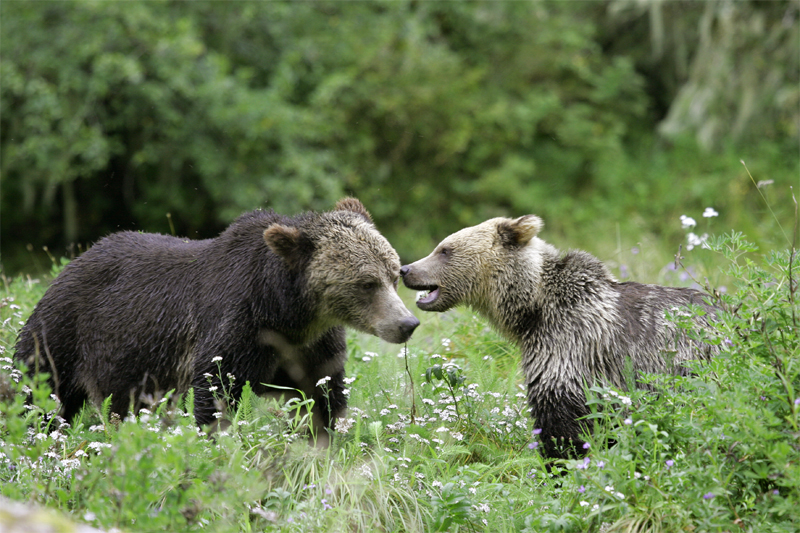

In the most recent study, PhD student and lead author Kyle Artelle and his colleagues analyzed a large government data set containing details on the deaths of thousands of bears killed by trophy hunters, as well as animal control officers, poachers and vehicle and train collisions.
Their researchers wanted to determine whether B.C.’s grizzly management met its own objectives of maintaining human-caused kills below predetermined limits set by the government. They found that of an estimated population of 15,000 bears in B.C., more than 3,500 (including over 1,200 females) were killed over the last decade, in most cases by trophy hunters. They also found total kills commonly exceeded limits set by management policy over 10 years, from 2001 to 2011. These “overkills” occurred at least once during the 10-year period in half the populations open to hunting. Disturbingly, overhunting was particularly prevalent for female bears, which are the reproductive powerhouses of the species, and thus critical to sustaining population numbers.
Trophy hunt needs to be reduced or stopped
The scientists also found the B.C. government is failing to take into account uncertainty around bear population numbers, sustainable mortality levels and predicting mortality when setting hunting limits that don’t result in excessive bear deaths. When these factors were taken into account, the actual mortality of bears resulting from human actions might be much higher than what the government considers “sustainable”, and thus the scientists show that for grizzly bear populations to be managed more conservatively, their exposure to trophy hunting and other threats would need to be reduced significantly.
Lead author Artelle told the Victoria Times Colonist, “These overkills are a serious concern because the biology of grizzly bears makes them highly vulnerable to excessive mortality. They have great difficulty recovering from population declines.”
Indeed, despite being large and ferocious animals, grizzly bears are highly sensitive to human impacts, in part because female bears reproduce later in life and often produce only a small number of cubs that survive into adulthood. Grizzlies must often travel over long distances to find enough food to sustain themselves, putting them at risk of coming into deadly contact with hunters, roads, town sites and other human encroachments into their habitat.
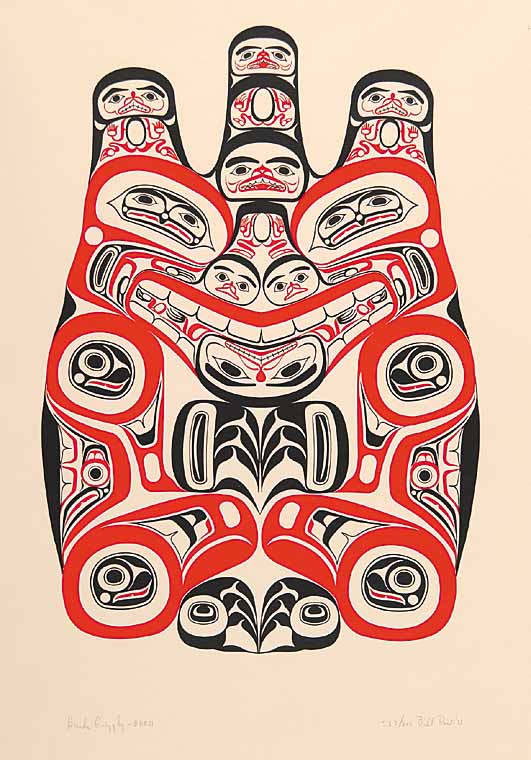

A young Haida woman lived as the wife of the bear, tending the fire in the dark bear den. One day her brothers came searching for her, and the Bear Wife decided she must reveal her presence. She rolled a snowball down the mountainside to draw their attention, and they clmbed up the rock slide. The Bear Husband knew he must die, but before he was killed by the woman’s brothers, he taught her and their two twin [half] Bear Sons the songs that the hunters must use over his dead body to ensure their good luck. He willed his skin to her father, who was tribal chief. The Bear Sons were spared. They would become great hunters and instructed people in singing the ritual songs. When their mother died, they put back on their bear coats and returned to live with the Bear People. — Mother Bear Story From a Haida Legend
B.C. government dismisses science
Sadly, the B.C. government quickly dismissed the findings of this latest study in a statement released November 5, claiming that overhunting doesn’t occur “since grizzly bear harvest numbers are deliberately set very conservatively.” The province also claimed that robust populations of grizzlies remain in B.C., contrary to the expert opinion of many independent bear biologists, and the fact that on-the-ground inventories of bear numbers are rarely done.
The government also claimed that grizzlies aren’t hunted in 35 per cent of the province. While this may be true, those are almost entirely areas where grizzlies have gone extinct, are currently threatened or are not hunted because of population concerns, providing strong evidence that management is not conservative!
The province’s claim that the grizzly bear hunt is scientifically well-managed is a tired refrain. We’ve heard it before from government managers for other species driven to near-extinction due to overharvesting, overfishing and overuse — including northern cod off the Newfoundland coast and rapidly disappearing old-growth cedar forests on Vancouver Island. We’ve witnessed the ecological, economic and social chaos that has occurred with government mismanagement of other species at risk. Let’s hope the B.C. government realizes this and ends its unsustainable bear trophy hunt before it’s too late and Canada’s great bears are but a memory of our nation’s former biological richness.
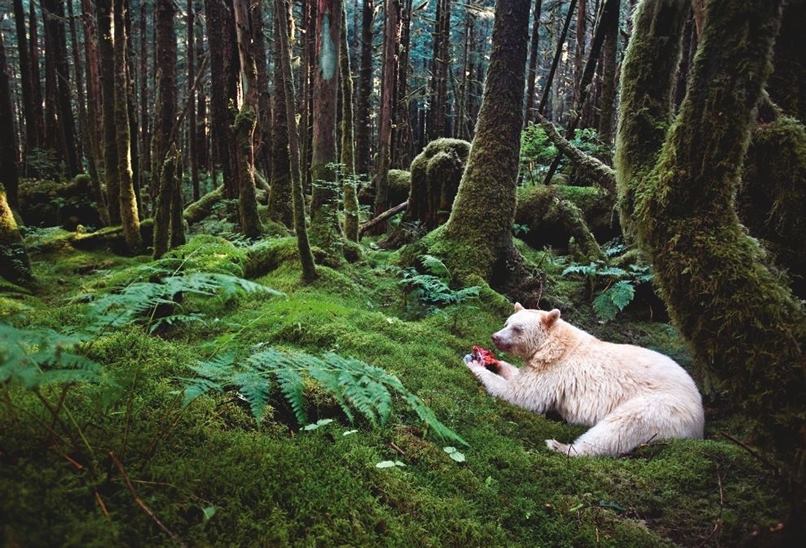

Sign the petition to end trophy hunt
You can help protect grizzly bears by signing a petition, organized by nine B.C. First Nations, which calls on Premier Christy Clark and her ministers in charge to end the grizzly bear trophy hunt.
These First Nations, under an alliance called Coastal First Nations, have acted on their own to protect the species by declaring their expansive traditional territories in B.C.’s Great Bear Rainforest off limits to trophy hunters under a tribal ban. As noted by Heiltsuk councillor Jessie Housty, “Analysis of their [government] own data shows managers are risking the long-term survival of grizzly populations across B.C. Our responsibility as First Nations is to step into that regulatory vacuum, and protect the bears in our territories.”
Coastal First Nations is an alliance of Wuikinuxv, Heiltsuk, Kitasoo/Xai’xais, Nuxalk, Gitga’at, Metlakatla, Old Massett, Skidegate and the Council of the Haida Nation, which is working to create a sustainable economy on British Columbia’s North and Central coasts and Haida Gwaii.



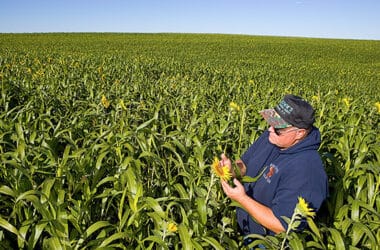


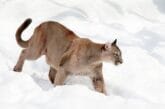


Pingback: Big Oil and Gas Resistance in BC: The Unist'ot'en Call to the Land | WilderUtopia.com